Los chistes de madre son un clásico, hay chistes de madres chistosas, de madres malvadas, de madres despistada o entrañables…
Os dejamos unos chistes de madre que os harían reír y pasar un buen rato con mamá 😉
– Mamá,mamá…¿que es «el eco»?- El eco es el único que le contesta a tu padre.
– Mamá, mamá…¿Cuánto cuesta casarse?- No tengo ni idea,hija, todavía no he terminado de pagar las consecuencias.
– Mamá, mamá…¿Tú te has casado por iglesia o por civil?- Me he casado por estúpida, hija.
– Mamá, mamá, en la escuela me dicen mafioso:- No te preocupes hijo, yo me encargo.- Bueno, que parezca un accidente.
– Mamá, mamá, en la escuela me dicen Sherlock Holmes.
– ¿Quien hijo?- Cállate, yo hago las preguntas.
– Mamá, mamá,llévame al circo.- De eso nada, el que quiera verte que venga a casa.
– Mamá, mamá, me pico una víbora.- ¿Que?… ¿cobra?…- No gratis.
– Mamá,¿qué haces en frente de la computadora con los ojos cerrados?- Nada, hijo, es que Windows me dijo que cerrara las pestañas…
– Mamá, mamá, en el colegio me llaman cabezón y yo les persigo.- Ah, ¿Y los alcanzas?- No nunca porque se esconden en callejones estrechos.
– Mamá, mamá, tengo dos noticias, una buena y otra mala.- A ver hijo, dime primero la buena.- Pues que he dejado la droga.- Hay que bien hijo, muchas felicidades, y la mala?- Que no se donde.
– Mamá, mamá en el colegio me llaman mariquita.- Pues pégale al que dice eso.- Ay no! es que es taaan guapo.
– Mamá, mamá, en el colegio me dicen mentiroso.
– Pero hijo, tú no vas a la escuela.
– Mamá, mamá, ¿Puedo ir a una fiesta de 15 años?- No, nene, es demasiado larga.
– Mamá, mamá… Los fideos se están pegando.- No importa hija, déjales que se maten.
– Mamá, mamá…¿por qué en la escuela me dicen «fin de semana»?- No sé, Domingo.
– Mamá, mamá, están golpeando a la puerta.- Déjala, que se defiende sola.
– Mamá, mamá…¿Puedo jugar con el abuelo?- Bueno, pero después vuelve a enterrarlo ¿De acuerdo?.
– Mamá, mamá, en el colegio me llaman egoísta.- Anda ya, y una mierda para ellos.- Si, y para mi que.
– Mamá, mamá, en la escuela me dicen peludo.- Juan el perro me esta hablando.
– Mamá, mamá, en la escuela me llaman el despistado.- Anda niño vete a tu casa.
– Mamá, mamá ¿ por que corre el abuelo por el jardín? – Hijo calla y dame mas cartuchos.

Ideas para el Día de la Madre:
Encontrar un momento del día para dar unas buenas risas con los niños es enriquecedor para toda la familia. Reírse es un santo remedio para animarse, y que no presenta contraindicaciones. ¿Qué os parece si motivamos a los niños a contar chistes? Los chistes despiertan y estimulan el buen humor de los niños, fomentan la risa, desarrollan su vocabulario, y divierten a todos. Por ello, en Guiainfantil.com hemos seleccionado algunos chistes sobre mamás y sobre papás para que puedas arrancar grandes risas a tus hijos.
Normalmente cuando los niños ingresan en el curso de Primaria, a partir de los 6 años de edad, suelen aprender algunos chistes a través de los libros y de intercambios con sus compañeros de colegio.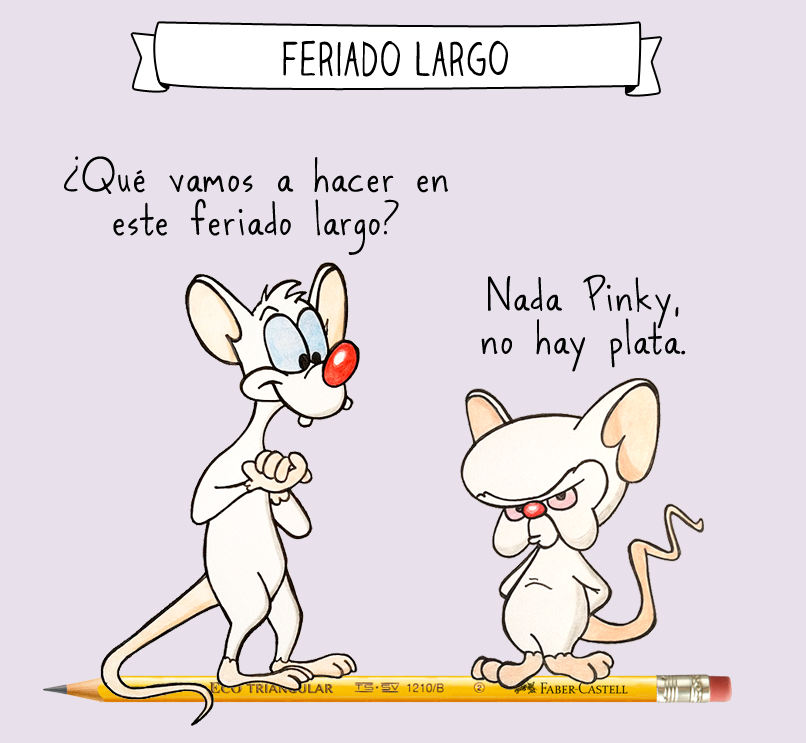 ¡No pierdas más tiempo y cuenta un chiste a tu hijo! ¡Seguro que os vais a reír un montón! Te proponemos estos chistes de mamá y papá ara niños. ¡Y a reír!
¡No pierdas más tiempo y cuenta un chiste a tu hijo! ¡Seguro que os vais a reír un montón! Te proponemos estos chistes de mamá y papá ara niños. ¡Y a reír!
En Guiainfantil.com hemos seleccionado algunos chistes dedicados a los papás y a las mamás. Con ellos, pasarás un rato muy divertido en familia. Incentiva en tu hijo el sentido del humor con todos estos chistes sobre padres y madres.
Chistes para disfrutar y contar a las mamás. Enseña y ríete con tus hijos con esos divertidos chistes.
– Mamá,¿qué haces en frente de la computadora con los ojos cerrados?
– Nada, hijo, es que Windows me dijo que cerrara las pestañas…
-¡Mamá!, ¡mamá!, en el colegio me llaman Jabón en polvo
– No te preocupes, Ariel.
– ¡Mamá, mamá!, en el colegio me llaman Shampoo
– Ay ya, Johnson, no más lágrimas
Le dice un niño a su madre:
– Mamá, mamá, qué rica está la paella.
Y su madre le contesta:
– Pues repite, hijo.
Y dice el hijo:
– Mamá, mamá, qué rica está la paella.
El niño le dice a su mamá:
– Mamá, mamá en el cole me dicen pato!
– Cua-cua-cua-cualquiera se da cuenta, hijo
Un niño dice a su madre:
– Mamá mamá me picó una víbora. Y su mamá le pregunta:
– Cobra?
– No gratis
El niño dice a la madre:
– Mamá, mamá, en el colegio todos me dejan solito…
Mamá! mamá!!!!!!!!mamáaa!!!!
– Mamá, mamá, en la escuela me dicen cebolla.
Y su madre le dice:
– Vete, que me vas a hacer llorar.
– Mamá, mamá, en el colegio me dicen que parezco una vaca.
– Muuuurmuraciones de la gente, muuurmuraciones, hijo.
Chistes para contar y disfrutar con los papás. Enseña esos chistes a tus hijos y ya verás que pasaréis un momento muy divertido en familia.
El niño dice al padre:
– Papá, ¿Cuántos años tiene el gato?
Y dijo el padre:
– 2 años.
Y el niño pregunta:
– ¿Y cuántos tengo yo?
Y dijo el padre:
– 5 años
Y dice el niño:
¿Y por qué el gato tiene bigotes y yo no?
– Papá, papá, la profesora hizo una pregunta y yo fui el único que levantó la mano.
– ¿Y qué preguntó?
– ¿Quién no hizo la tarea?
– Papá, papá, en el colegio me llaman campana.
– Tolonterías de tus compañeros
Un niño le pregunta a su padre:
– Papá, papá, ¿dónde están los Alpes?
– Pregúntaselo a tu madre que es la que lo guarda todo.
– Papá, papá, ¿es verdad que los papás saben más que los niños?
– Claro hijo, es verdad.
– ¿Quién fue el inventor de la imprenta?
– El inventor de la imprenta fue Gutenberg.
– Pero entonces, ¿por qué no la inventó el papá de Gutenberg?
– Papá, papá, ¿qué se siente al tener un hijo tan guapo?
– No sé, hijo, pregúntaselo a tu abuelo.
– Hijo, si repruebas el examen de mañana olvídate que soy tu padre
Al día siguiente:
– Hijo ¿cómo te fue en el examen?
– ¿Y tú quién eres?
Puedes leer más artículos similares a Chistes de mamá y papá para niños, en la categoría de Chistes en Guiainfantil. com.
com.
Home — MTK im. Admiral D.N. Senyavina
Please enable JavaScript!
How?
| Font size: | Site color: | Images: |
News
2024-12-30 14:15:00
2023-08-26 11:49:00
On August 19, the Education Committee signed an order approving the charter with a new name.
2023-04-27 14:07:00
Notification of the completion of the reorganization of SPbMTK
St. Petersburg State Autonomous Vocational Educational Institution “Marine Technical College named after Admiral D.N. Senyavin” informs about the completion of the reorganization by joining the St. Petersburg State Budgetary Vocational Educational Institution “Kronstadt Lyceum” on the basis of the order of the Education Committee dated April 11, 2022 No. 755-r “On Amendments to the Network of State Educational Institutions of St.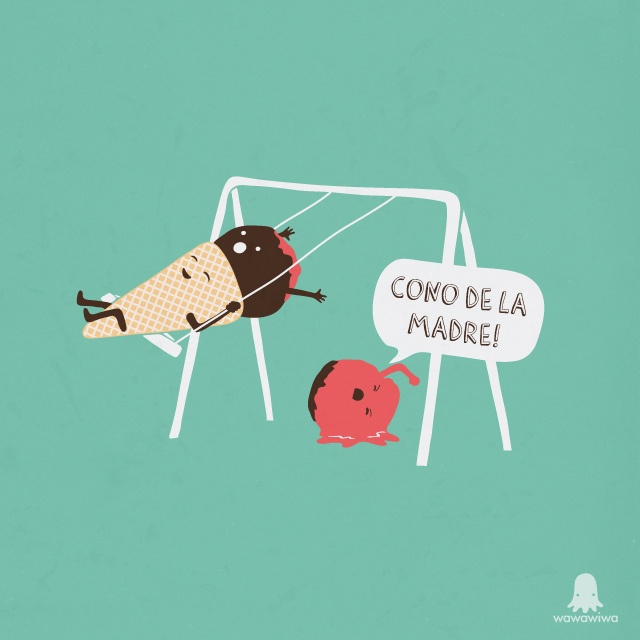 Petersburg”. The corresponding entry was made in the Unified State Register of Legal Entities 29July 2022.
Petersburg”. The corresponding entry was made in the Unified State Register of Legal Entities 29July 2022.
2022-11-21 10:26:00
Dedicated to beloved mothers
November 21, traditional lessons “Talk about the important” at the Admiral D.N. Senyavin were dedicated to the most dear and beloved – mothers! Mother’s Day is one of the most touching and wonderful holidays. In Russia, it is celebrated on the last Sunday of November.
2022-11-17 12:46:32
Cadets visited the Hygiene Museum
On November 17, cadets of the technological department of the second platform of the Marine Technical Academy named after Admiral D.N. Senyavin visited the State Center for Medical Prevention at 25 Italianskaya Street
2022-11-16 16:12:00
How to make your choice
On November 16, the Kronstadt Palace of Youth hosted the competition program “Russia’s Choice”, dedicated to the Day of the Young Voter, which is celebrated in St. Petersburg on November 18. The event was also attended by cadets of the fourth platform of the Marine Technical Academy named after Admiral D.N. Senyavin.
Petersburg on November 18. The event was also attended by cadets of the fourth platform of the Marine Technical Academy named after Admiral D.N. Senyavin.
2022-11-16 16:11:00
In honor of Tolerance Day
International Day for Tolerance is celebrated annually on November 16. This holiday was solemnly proclaimed in the “Declaration of Principles of Tolerance” by UNESCO.
2022-11-15 16:55:00
Delivery to servicemen participating in a special military operation
By November 15, cadets of the first platform of the Marine Technical Academy named after Admiral D.N. Senyavin (pr. People’s Militia, 189) collected parcels for servicemen participating in a special military operation in Ukraine.
2022-11-15 15:48:00
Annual Conscript Day
On November 15, cadets of the fourth platform of the Marine Technical Academy named after Admiral D.N. Senyavin in the Kronstadt district of St. Petersburg was adequately represented by the institution at a citywide event dedicated to the Day of the draftee.
2022-11-15 15:47:00
And the AIT has a “Best Chef”
From November 14 to November 15, the St. Petersburg Hotel hosted the II Cup of the Governor of St. Petersburg “The Best Chef of the St.
cuisine” – 2022. The event was organized by the St. Petersburg Committee for External Relations within the framework of the “Petersburg Cuisine” project, and the co-organizers were the St. Petersburg Tourism Development Committee, the Representative Office of the Federation of Restaurateurs and Hoteliers of Russia in St. Petersburg and the St. Petersburg Association cooks.
2022-11-12 11:49:06
The Young Lady Peasant Woman was presented at the MTA
On November 11, visit the cadets of the Admiral D.N. Senyavin came a real theater. This is the “Pushkin School” – the first theater in the world, where they are engaged in the creative development of Pushkin’s theatrical system – a special page in the history of Russian theater.
2022-11-11 17:37:00
Remembering the fire at Nevskaya Manufactory
On November 11, in the assembly hall of the second site of the Marine Technical Academy named after Admiral D. N. Senyavin took a lesson in courage, dedicated to such a dangerous topic as a fire.
N. Senyavin took a lesson in courage, dedicated to such a dangerous topic as a fire.
2022-11-11 15:45:00
“Don’t shut yourself up!”
On November 11, with the cadets of the first platform of the Marine Technical Academy named after Admiral D.N. Senyavin (pr. Narodnogo Opolcheniya, 189) was conducted by a specialist of the Center for Psychological and Pedagogical Support of the Kirovsky District of St. Petersburg A.V. Kumanenko. His topic was titled: “What to do if …”.
2022-11-11 13:00:00
The parade that changed history
November 7 is a memorable date in Russian military history. On this day at 19In 41, a traditional military parade was held on the main square of the country in honor of the anniversary of the October Revolution. And this parade became a special, turning point in the history of Russia, as well as the Great Patriotic War and World War II: the whole world saw that the Red Army and the Soviet Union were determined to defend their homeland under any circumstances.
2022-11-10 13:55:00
New issue of the Kompas MTK newspaper
The next issue of the newspaper “Compass MTK” has been released.
ALL NEWS
Beginning of the article →
The Krushelnitskaya Festival opened with Madama Butterfly, a landmark for Krushelnitskaya’s work. It is known how this opera is honored in Japan. It was all the more interesting to listen and see the Japanese woman in the role of Cio-Cio-san.
“Butterfly” is Puccini’s favorite brainchild, he could “listen to it tirelessly over and over again.” Indeed, the impressionistic sonority of the score is stunning with its plasticity, which has the ability to introduce the listener into some kind of hypnotic trance.
Such music, by the way, is difficult to review, because listening to it, you forget about everything, and there is no time for analysis. The composer called the opera a “Japanese tragedy”, but the conflict here is purely personal, intimate, although shrouded in a subtle, graceful veil in an oriental way. There are no excessive external affects of a dramatic plan, like Tosca, filled with “thunderstorm” events, in it. Everything is concentrated in the depths of the inner world of the main character. And the rest of the characters, including Pinkerton, only set off her image with their somewhat didactic schematism (certainly conceived by Puccini) and individual outbursts of feelings.
There are no excessive external affects of a dramatic plan, like Tosca, filled with “thunderstorm” events, in it. Everything is concentrated in the depths of the inner world of the main character. And the rest of the characters, including Pinkerton, only set off her image with their somewhat didactic schematism (certainly conceived by Puccini) and individual outbursts of feelings.
The performer of the role of Cio-Cio-san has a huge artistic and psychological burden. To be able to show all the twists and turns of spiritual unrest in their transitions from hope to humility, from delight to despair, while maintaining in everything the elegance of style and external form, characteristic of typical Eastern ritual education – this is her most important task, and even within the framework of opera, singing, about which never to be forgotten!
In my opinion, the Japanese soprano Manami Hama solves this problem successfully. The palette of her mimic, intonational and behavioral techniques is unusually diverse and, most importantly, meaningfully structured. At the same time, that necessary proportion between spontaneous impulsiveness and verified facial expressions was observed. The artist lives and works in Italy, but is not a star in the West. There is a feeling that Cio-Cio-san is her main role in life. But what does it all matter if she achieves her goal in the performance, which was most clearly manifested in the scenes of the 2nd act with Sharpless and Suzuki and in the finale. With regard to vocal data, with competent voice leading, expressed primarily in the alignment of registers and intonational accuracy, her voice, perhaps, lacks timbre richness and warmth. Nevertheless, there were more pluses in this performance than minuses, especially considering that the ensemble singing, so important in this opera – big duets with Pinkerton and Suzuki – she succeeded, and the top notes, including “do”, too . In this regard, it is clear that it was by no means more advantageous for her Un bel di vedremo with its purely vocal beauties, and the “hard” Che tua madre .
At the same time, that necessary proportion between spontaneous impulsiveness and verified facial expressions was observed. The artist lives and works in Italy, but is not a star in the West. There is a feeling that Cio-Cio-san is her main role in life. But what does it all matter if she achieves her goal in the performance, which was most clearly manifested in the scenes of the 2nd act with Sharpless and Suzuki and in the finale. With regard to vocal data, with competent voice leading, expressed primarily in the alignment of registers and intonational accuracy, her voice, perhaps, lacks timbre richness and warmth. Nevertheless, there were more pluses in this performance than minuses, especially considering that the ensemble singing, so important in this opera – big duets with Pinkerton and Suzuki – she succeeded, and the top notes, including “do”, too . In this regard, it is clear that it was by no means more advantageous for her Un bel di vedremo with its purely vocal beauties, and the “hard” Che tua madre .
Pinkerton – soloist of the Kyiv National Opera Nikolai Shulyak – energetically began with his “anthem” Dovangue al mondo , and then competently and quite technically covered Sharpless’s O amico fortunate with his Si, è vero, è un fiore, un fiore . At such moments, professionalism is always tested. In the love duet Vogliatemi bene , the singer’s voice was in harmony with the singing of a Japanese woman, but it was very Italian in spirit Addio fiorito asil turned out to be rather fresh.
In general, I must say that the quality of the music was good. Lviv soloists Yuri Shevchuk (Sharples) and Yana Voytyuk (Suzuki) did not fall out of the “clip”. But the problem of the actual voice nature turned out to be just as common to all.
The sound of the orchestra (conductor Vasily Vasilyenko) cannot but arouse approval, we were pleased with the lack of brutality and “kiks” in brass, which is a common misfortune of many bands. The tempos were generally familiar, with rare exceptions including an underpowered introductory fugato.
The tempos were generally familiar, with rare exceptions including an underpowered introductory fugato.
It makes no sense to discuss directing and scenography – the performance is over 20 years old (staged in 1989) and, of course, it needs updating …
The hall at the first performance of the festival was not filled to capacity. It upset me. Perhaps the whole point was that the performances in Lvov start early, at six o’clock, and the day was a weekday. However, at all further performances there was not a single empty seat.
* * *
The monumental “Aida” is the pinnacle of Verdi realism. A certain pompousness of style presents a certain difficulty for interpretation, especially in the mass scenes so beloved by large-scale festivals such as the Verona Arena. And one more thing – there are so many textbook numbers in this opus that any artistic statement immediately evokes associations with great examples. Let’s try to move away from this and avoid comparisons.
A native of Transcarpathia Georgina von Benza (Germany) was invited to play the title part. She is presented in the booklet as a laureate of international competitions. Aida is a pretty strong party, though not Turandot. The main paint in von Benza’s palette was piano , well, maybe mezzo piano . She makes a sound of such power well and gently. However, where drama is required, there is immediately a lack of sound and a feeling of some kind of failure. Therefore, in the voice leading as a whole, smoothness is not felt. In addition, the singer is not very good at large intervals – octaves of Ritorna vincitor , sevenths in the final duet O terra addio turn into “obstacle races”. But Numi, pieta (“My Gods”) in the final part of the aria of the 1st act gave pleasure and in quality fully corresponded to the meaning of the words.
Probably, the problem would not have been so acute, but the fatal discrepancy in the “weight category” in the sound with Radames – Eduard Srebnitsky aggravated the matter. The latter simply took his whole party by shouting. He tried in this way to compensate for the problems of his very age vocals. This is all the more annoying, because the musician Srebnitsky is excellent and with great experience, verified phrasing, the absence of any hint of falsehood and abuse portamento .
The latter simply took his whole party by shouting. He tried in this way to compensate for the problems of his very age vocals. This is all the more annoying, because the musician Srebnitsky is excellent and with great experience, verified phrasing, the absence of any hint of falsehood and abuse portamento .
Laureate of the most prestigious vocal competitions Natalia Datsko was among those two soloists (more on the second later) that I knew well. True, I heard the singer’s magnificent voice even when she was a soprano and even reviewed the performance of the artist in one of the concerts of the Arkhipova Foundation. Then he visited her Leonora in The Force of Destiny at the Bolshoi Theater in early 2002. However, all this was a long time ago, and now she appeared in her new role – mezzo-soprano, and even in such a “hard nut” as Amneris.
There are not so many hit mezzos in the world repertoire. In any case, if we exclude the fashionable exercises of old opera seria, in which mezzos compete in the same roles with countertenors, as well as Rossiniev’s coloratura parts (all this for rather narrow specialists), and limit ourselves to the popular repertoire of the 19th century, then there will be one, two and miscalculated – everything is worth its weight in gold. And Amneris is one of them! Here “gold” just was not observed, because the requirements for saturation and depth of sound are great. And the voice sounded thin for a mezzo. In short, we can say that Datsko’s change of role does not convince and seems in vain. However, I do not know the underlying causes of such a metamorphosis.
And Amneris is one of them! Here “gold” just was not observed, because the requirements for saturation and depth of sound are great. And the voice sounded thin for a mezzo. In short, we can say that Datsko’s change of role does not convince and seems in vain. However, I do not know the underlying causes of such a metamorphosis.
The fourth protagonist, the Ethiopian king, does not have much time for the performance to prove himself, but where! In the absolutely brilliant Scene at the Nile! Unfortunately, Anatoly Lipnik’s voice sounded “tired” and lacked focus. Such singing is often called large-pitched, we inherited it from the Soviet vocal school, which has such a sin.
Bas Andrey Valenty is the second of my acquaintances. Most recently, in the spring, I had a chance to listen to him at the Youth Forum of Opera Arts of the CIS countries in Minsk, where he brilliantly performed the parts of Collin and King René. With all the stability and quality of sound production, today I had complaints about him, this time of a stylistic nature – his Ramfis, at times, looked very imposing and instructive, the majesty of whose image cannot be replaced by too worldly aggressiveness.
Maestro Miron Yusipovich’s orchestra is the most pleasant impression of the evening. Overplayed music he interpreted with some immediate freshness.
And again, there is almost nothing to say about the staging aspects of the play. Static mise-en-scenes and the symmetry of traditional scenography, which is based on standard picturesque backdrops and backstage, the lack of inventive work of the lighting designer leave little room for the visual emotions of the viewer.
* * *
I was most interested in the infrequent in the CIS “Masquerade Ball”. From some music lovers and fans of Verdi, I sometimes heard the opinion that this is almost one of his best operas. Although I do not share such an extreme judgment, I highly appreciate this opus and understand the reasons for such assessments. In the “Ball” happily converged, and very prominently, all those qualities that bring out the essence of this universal art form to the maximum. The opera is rich in marvelous melodies and saturated with Verdi’s truly musical and dramatic persuasiveness of the mature stage of his work. At the same time, this drama in “Ball” is faceted by conditional operatic hedonism, tragedy is combined with grace, internal psychologism with external brilliance of theatricality (flavored with dance rhythms), an individual close-up with a common ensemble (which is worth only one virtuoso quintet in the 1st scene final act). And one more thing: in the style of the vocals, the belkantoness, which seems to be almost a thing of the past, clearly peeps through. Merged together, all this gives the action the features of a sublime artistic miracle. If I were asked to describe in a few words the mood that the opera evokes in the listener, I would put it in Pushkin’s words: “My sadness is bright”! Only once such a style “revenges” Verdi in this opera – a clear lightness, the “ball” of the mournful finale.
At the same time, this drama in “Ball” is faceted by conditional operatic hedonism, tragedy is combined with grace, internal psychologism with external brilliance of theatricality (flavored with dance rhythms), an individual close-up with a common ensemble (which is worth only one virtuoso quintet in the 1st scene final act). And one more thing: in the style of the vocals, the belkantoness, which seems to be almost a thing of the past, clearly peeps through. Merged together, all this gives the action the features of a sublime artistic miracle. If I were asked to describe in a few words the mood that the opera evokes in the listener, I would put it in Pushkin’s words: “My sadness is bright”! Only once such a style “revenges” Verdi in this opera – a clear lightness, the “ball” of the mournful finale.
Such music inexorably demands from the performers a truly Italian, unconstrained manner of singing, the qualities of which cannot be compensated by the significance of dramatic expression. A big load in the opera falls on Richard/Riccardo – there is no getting around it. And the soloist of the Lviv Opera Roman Trokhimuk perfectly fulfilled this mission. From the first words of Amici miei, soldati , his flying and sonorous voice fills the hall, evoking in the listener an emotion that could best be called pleasure . The famous aria La rivedra nell’estasi , which soon followed, only confirmed this. Perhaps the slightest touch of excessive sound assertiveness, slightly narrowing the timbre richness, is present in his sound science, but does not go beyond that dangerous line beyond which straightforward simplicity looms, and may well be considered an individual feature of the artist.
A big load in the opera falls on Richard/Riccardo – there is no getting around it. And the soloist of the Lviv Opera Roman Trokhimuk perfectly fulfilled this mission. From the first words of Amici miei, soldati , his flying and sonorous voice fills the hall, evoking in the listener an emotion that could best be called pleasure . The famous aria La rivedra nell’estasi , which soon followed, only confirmed this. Perhaps the slightest touch of excessive sound assertiveness, slightly narrowing the timbre richness, is present in his sound science, but does not go beyond that dangerous line beyond which straightforward simplicity looms, and may well be considered an individual feature of the artist.
Lyudmila Savchuk, who sang Amelia, with her not very bright voice and nervous manner of sounding, did not give us a chance to get the same pleasure. In addition, there was a lack of pitch accuracy – the singer often “lowered” …
But Natalya Kuriltsiv’s Oscar turned out to be on top. Here was just the case when the apparent shortcomings of the voice – its “pioneer” flavor – did not in the least interfere with the creation of a naive-puppet travesty image. Only purity of tone and good coloratura technique were required, which was demonstrated by the singer.
Here was just the case when the apparent shortcomings of the voice – its “pioneer” flavor – did not in the least interfere with the creation of a naive-puppet travesty image. Only purity of tone and good coloratura technique were required, which was demonstrated by the singer.
As A.N. Serov used to say in ancient times, everyone in the Ball is just waiting for Graziani’s Aria in front of a portrait (the critic meant the then idol of Petersburgers, the wonderful Verdi baritone – approx. ed. ). And what about our Graziani – Orest Sidor? In general, I liked his speech, although some things require clarification. The part is sung, the notorious “aria before the portrait” – the famous Eri tu – is performed emotionally and convincingly. But there are a couple of nuances, purely for taste – I felt in my voice an excessive vibrato on forte and maesto, which is not always appropriate for such an elegant Italian opera .
Special talk about Ulrika. To become a true decoration of the opera, this insert “diamond” must sparkle with its own light, and not with reflected light. For what reason, I don’t know (maybe ill health?), but it seemed to me that Tatiana Busuyok, a guest from Moldavia, spared herself too much that evening. Her mysterious character turned out to be faded and not expressive enough both in terms of vocals and artistry.
To become a true decoration of the opera, this insert “diamond” must sparkle with its own light, and not with reflected light. For what reason, I don’t know (maybe ill health?), but it seemed to me that Tatiana Busuyok, a guest from Moldavia, spared herself too much that evening. Her mysterious character turned out to be faded and not expressive enough both in terms of vocals and artistry.
Maestro Andrey Yurkevich fully demonstrated the feeling of Verdi style. His elegant gesture created the necessary message to the orchestra that sounded harmonious and noble.
Un ballo in maschera is a relatively new production for the theatre, premiered in 2005. Unlike other performances of the festival, the appearance of the performance looked fresher and brighter – this was facilitated by the cool work of the production designers (Tadey Ryndzak and Mikhail Ryndzak) and the thoughtful decisions of the director Vasily Vovkun.
* * *
The culmination of the festival was a festive gala concert. His program consisted almost entirely of hits from world opera classics. For the public, this content of the concert entailed an inevitable bouquet of pleasant emotions, the basis of which was the joy of recognition . And it imposed a special responsibility on the soloists, because almost every note of these works was known to everyone. It should be noted, by the way, that all soloists (including foreign ones), with the exception of Ramiz Usmanov from Uzbekistan, have Ukrainian roots, studied and started their careers in their homeland.
His program consisted almost entirely of hits from world opera classics. For the public, this content of the concert entailed an inevitable bouquet of pleasant emotions, the basis of which was the joy of recognition . And it imposed a special responsibility on the soloists, because almost every note of these works was known to everyone. It should be noted, by the way, that all soloists (including foreign ones), with the exception of Ramiz Usmanov from Uzbekistan, have Ukrainian roots, studied and started their careers in their homeland.
The concert opened with an introductory theatrical production number – a recording of the voice of the great singer sounded, and then the melody of Cio-Cio-san’s aria was picked up by three soloists of the theater – Galina Vilkha, Lyubov Kachala and Svetlana Mamchur. Behind the conductor’s stand was the chief conductor of the theater Mikhail Dutchak.
The main program began with Don Basilio’s aria from The Barber of Seville performed by Andrey Valenty, sung by him impressively and quite loudly, in some Chaliapin spirit.
Performed by artist Svetlana Katernozy, Canadian-based soloist of the Mississauga opera (as in the booklet), we heard Norma’s Bellini cavatina. I don’t know what could have motivated the singer to perform such a sung masterpiece. But her singing did not make much of an impression on me. Slow tempo, noticeable “seams” in the cantilena associated with breathing, approximate ends of phrases, blurry notes – this is an incomplete list of problems. At the same time, the artist also sang a cabaletta, in which the lack of voice mobility manifested itself even more …
Rudolf’s aria Che gelida manina from “La Boheme” guest from Uzbekistan, soloist of the Tashkent Opera and Ballet Theater Ramiz Usmanov can be included in the program asset. Pleasant appearance, competent sound delivery and phrasing – already not bad. Only certain problems during the transition to the upper register, harshness and dryness of the timbre reduced the impression.
Oleksandr Gromysh, the soloist of the Lviv Opera House, appeared before the public in the image of Philip II from Don Carlos.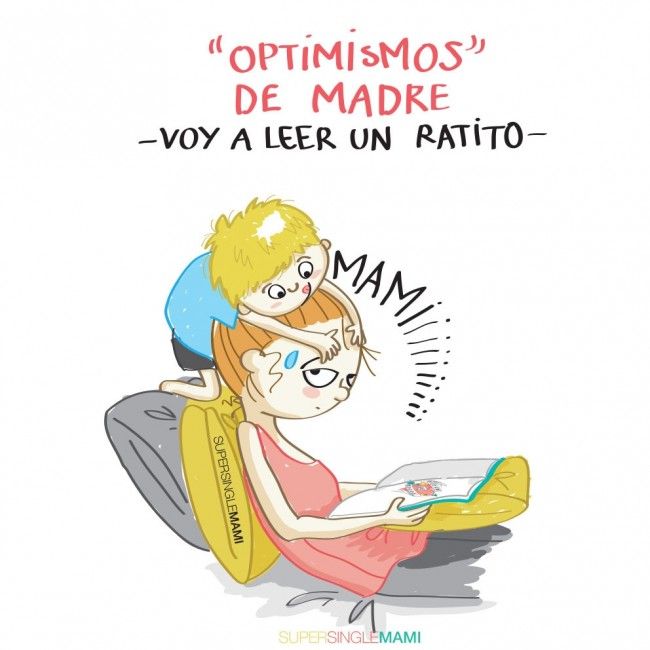 Difficult multi-part aria (monologue) Ella giammai m’amo with a change of mood, the singer was generally successful. Achievements include convincing figurativeness, clear articulation, good mezzo voce , beautiful rising upper E. We were upset by some inaccuracies in the lower register, the lack of mobile melodiousness ( mosso cantabile ) in section Dormirò sol .
Difficult multi-part aria (monologue) Ella giammai m’amo with a change of mood, the singer was generally successful. Achievements include convincing figurativeness, clear articulation, good mezzo voce , beautiful rising upper E. We were upset by some inaccuracies in the lower register, the lack of mobile melodiousness ( mosso cantabile ) in section Dormirò sol .
Then came the obliging Quartet from Rigoletto (Natalia Romanyuk, Yana Voytyuk, Oleg Likhach and Orest Sidor). It was actually sung decently, but ensemble music-making was not always absolutely harmonious, sometimes individual voices were not heard. Duke Oleg Likhach seemed less convincing – “angular” voice, inaccurate intonation; Romanyuk (Gilda) did not look much like the touching Gilda, although she did not make significant mistakes; Yana Voytyuk (Maddalena) had technical problems. Most of all, Sidor (Rigoletto) was on the spot – this is, of course, his party.
Another super hit – Carmen Habanera. Mezzo by Ivanna Taratula-Filipenko from the USA is quite deep and sensual. And the interpretation of the image turned out to be very restrained without excessive dance passion – well, there is even something in it! However, there was a lack of stage experience and freedom of expression. As it turned out later, the singer rarely performs on stage, doing mostly teaching work (she has her own vocal studio in San Francisco). Looking ahead, I will say that in the 2nd part she performed the third aria of Delilah, showing a good cantilena on descending chromatisms. But she dragged out the pace and did not quite cope with the bottoms (b-flat).
Mezzo by Ivanna Taratula-Filipenko from the USA is quite deep and sensual. And the interpretation of the image turned out to be very restrained without excessive dance passion – well, there is even something in it! However, there was a lack of stage experience and freedom of expression. As it turned out later, the singer rarely performs on stage, doing mostly teaching work (she has her own vocal studio in San Francisco). Looking ahead, I will say that in the 2nd part she performed the third aria of Delilah, showing a good cantilena on descending chromatisms. But she dragged out the pace and did not quite cope with the bottoms (b-flat).
Georgina von Benza also took the stage twice. First she sang Tosca’s aria. In Vissi d’arte her soft voice turned out to be in tune with the musical material. In the performance, one could feel the measured and elastic rhythm of the melody with good quartoles, which always constitute a rhythmic difficulty for the performer. But flaws in phrasing and sometimes slipping, some trembling in his voice spoiled the picture, which was generally favorable. In Leonora’s aria from the 1st act of Il trovatore, performed in the 2nd part, difficulties lay in wait for the singer in a virtuoso cabaletta, the musical fabric of which looked patchy and with unconvincing twitchy tops.
In Leonora’s aria from the 1st act of Il trovatore, performed in the 2nd part, difficulties lay in wait for the singer in a virtuoso cabaletta, the musical fabric of which looked patchy and with unconvincing twitchy tops.
With great interest I expected the performance of the German singer Konstantin Rittel-Kobyliansky. The fact is that even the day before, on the sidelines of the festival, I ran into him. The spectacular appearance of the artist, a tall, stately figure, impressiveness and some narcissism in his demeanor reminded me of Philip Kirkorov. This association intensified when, from a biographical note, I learned that the singer “dabbles” with pop hits. What did he present to the public?
As a “seed” the artist chose nothing less than – Te deum from Tosca. I believe the choice was correct. For this whole episode, including the choral accompaniment (the choir of the Lviv Opera and Ballet Theatre), looked impressive and convincing. The recitative manner that is so appropriate here, Scarpia’s ominous pathos with a hypocritical tint – all this is well done by the artist, if he squeezed it, then a little, within the limits of artistically permitted. But it is difficult to comprehensively check the vocal technique on such material. Something else was needed that was not long in coming.
But it is difficult to comprehensively check the vocal technique on such material. Something else was needed that was not long in coming.
The contrast to the image of Scarpia in the 2nd part was Escamillo with his Couplets. I will not be lazy and will dwell on this number in a little more detail. Did Rittel-Kobyliansky understand that he was singing French music and that the image here was of a completely different nature? All the external militancy and heroic appearance of the bullfighter’s profession are implicated in the elegant artistry of the favorite of the crowd and women. But the singer continues to “bend” his villainous-demonic line. His performance lacked subtle articulation and charm, and the throaty, large-pitched sound continued to fall on us like from a loudspeaker in the square. In these Couplets, as you know, there are many difficulties associated with proper breathing, failures in which affect the coherence of sound production, and with a beautiful stretching of the lower notes (again, the same fatal B-flat), which the singer turned out to be slightly careless. Competently making a diminuendo before the chorus, Rittel-Kobylyansky, instead of continuing the famous call “Toreador, bolder …” in a slightly softer and more refined style (not without reason, the orchestra at this moment is prescribed pianissimo ), again returns to the trumpet tone, which makes the motive look like a recitation of “an agitator, bawler, leader” in the spirit of Mayakovsky’s famous lines. In fairness, it should be noted that now many people sing the Toreador (and not only him) in a similar, absolutely unified way, which indicates the decline of vocal and general artistic culture.
Competently making a diminuendo before the chorus, Rittel-Kobylyansky, instead of continuing the famous call “Toreador, bolder …” in a slightly softer and more refined style (not without reason, the orchestra at this moment is prescribed pianissimo ), again returns to the trumpet tone, which makes the motive look like a recitation of “an agitator, bawler, leader” in the spirit of Mayakovsky’s famous lines. In fairness, it should be noted that now many people sing the Toreador (and not only him) in a similar, absolutely unified way, which indicates the decline of vocal and general artistic culture.
Now back to Ramiz Usmanov. He had another performance in the 2nd part – Lamento di Federico from Cilea’s Arlesian. Competent execution is the most suitable characteristic for him. Learned tones, dosed emotions and stingy agogics turned very sensual impressionistic music into a kind of emasculated compulsory school curriculum. It’s a pity, but the singer has some potential and strong tops – he took the plug-in B beautifully.
Verdi cavatina Lady Macbeth Vieni! t’affretta! looked like a black sheep. In general, “Macbeth” is not the most popular opus of the Italian master. This is not the place to discuss why. But let us recall the words of Verdi in one of the letters about the image of the insidious wife of the protagonist – it is related to our subject – “… I would like the lady not to sing at all, <...> so that the lady’s voice is sharp, dull, gloomy.” If we consider the manner of Svetlana Katernoz from this perspective, then we must admit that this role turned out to be suitable for her. The voice is indeed, if not muffled, then at times harsh and stifled; the purity of the emission is sometimes replaced by an approximate intonation, and insufficient mobility … is not made up for by anything.
One of the best numbers of the 2nd part was Galitsky’s Song from “Prince Igor” by Borodin, interpreted by Andrey Valenty, sung by him not only very high quality, but also with the proper degree of figurativeness and energy. The combination of recitative talk and wide rhythmic vocalization is very accurate – you can’t fault it!
The combination of recitative talk and wide rhythmic vocalization is very accurate – you can’t fault it!
I also liked Bogdan’s Monologue from Dankevich’s opera “Bogdan Khmelnitsky” performed by the baritone of the soloist of the Lviv Theater Piotr Radeiko. This music is unfamiliar to me, so there were no starting points for a comparative stylistic analysis. I had to intuitively rely in my assessment only on musical imagery and voice. The idea of this opera was also supplemented by its overture (conductor Vasil Vasilenko).
Another soloist of the Lviv Theater Lyubov Kachala sang with feeling the sad, sometimes passionate and very melodious aria of Galka from the 2nd act of Moniuszko’s opera of the same name. The singer’s voice sensitively followed the twists of the melodic pattern. It is a pity that Moniuszko is little known to the general public in Russia, but his “Terrible Yard” on a ten-year-old Moscow tour of the Warsaw Opera made a great impression.
Before moving on to the final chords of the concerto, it is impossible not to mention one more number. In a series of classical compositions, he stood out for his non-academic format, and turned out to be charming and incendiary. Three tenors (after the world-famous “football” troika, it’s impossible to do without it) Roman Vitoshinsky, Oleg Likhach and Vasily Sadovsky sang two famous Neapolitan songs for the public – O, sole mio E. Capua, “Soldier in Love” by E. Cannio, as well as a wonderful Ukrainian romance by A. Kos-Anatolsky “Oh, you are a maiden”. The round of applause was completely deserved. I don’t want to offend two other worthy performers, but when People’s Artist of Ukraine Roman Vitoshinsky entered with his sunny voice, I was breathless with delight…
In a series of classical compositions, he stood out for his non-academic format, and turned out to be charming and incendiary. Three tenors (after the world-famous “football” troika, it’s impossible to do without it) Roman Vitoshinsky, Oleg Likhach and Vasily Sadovsky sang two famous Neapolitan songs for the public – O, sole mio E. Capua, “Soldier in Love” by E. Cannio, as well as a wonderful Ukrainian romance by A. Kos-Anatolsky “Oh, you are a maiden”. The round of applause was completely deserved. I don’t want to offend two other worthy performers, but when People’s Artist of Ukraine Roman Vitoshinsky entered with his sunny voice, I was breathless with delight…
Two ensemble finals with the choir completed each of the sections of the concert. In the first of them, the finale of the 1st act of “Nabucco” was played with six soloists, although only five were indicated in the program (apparently the organizers did not consider it essential to note the secondary role of Anna, Zachariah’s sister).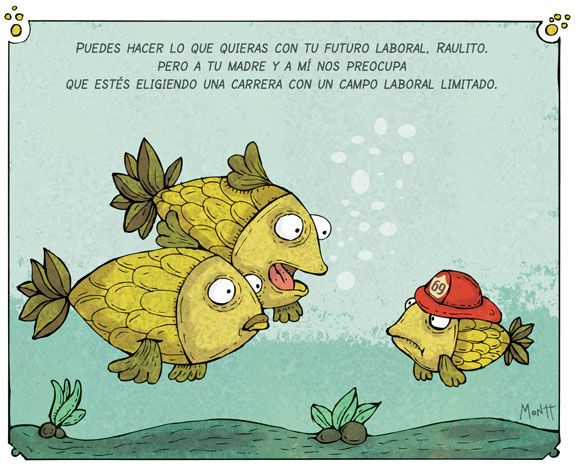 Let’s list them: Andrey Benyuk (Nabucco), Svetlana Mamchur (Abigail), Alexander Gromysh (Zakharia), Natalia Velichko (Fenena) and Oleg Likhach (Ismail). The bravura posterity of early Verdi is not very fertile material for a popular concert, especially since there are many technical difficulties here, and few bright, memorable melodies. True, there is one such finale in the performed finale, which was first performed in the overture and reminiscent in spirit of one of the themes of Rossiniev’s overture to William Tell. All this feast was embodied effectively, although a little loud (Abigail was especially distinguished by this), which is quite excusable, given the nature of the music. The orchestra didn’t disappoint. Miron Yusipovich supervised this action.
Let’s list them: Andrey Benyuk (Nabucco), Svetlana Mamchur (Abigail), Alexander Gromysh (Zakharia), Natalia Velichko (Fenena) and Oleg Likhach (Ismail). The bravura posterity of early Verdi is not very fertile material for a popular concert, especially since there are many technical difficulties here, and few bright, memorable melodies. True, there is one such finale in the performed finale, which was first performed in the overture and reminiscent in spirit of one of the themes of Rossiniev’s overture to William Tell. All this feast was embodied effectively, although a little loud (Abigail was especially distinguished by this), which is quite excusable, given the nature of the music. The orchestra didn’t disappoint. Miron Yusipovich supervised this action.
The final apotheosis of the concert was the finale of the 2nd act of the opera “Taras Bulba” by the founder of the Ukrainian composer school Mykola Lysenko, performed with great emotional intensity by the orchestra, choir and soloists conducted by Mikhail Dutchak.
It remains to name two more conductors who worthily supported the maestro we have already named: Vladimir Garkusha and Irina Stasishin.
Scorica-Puccini’s ballet “Return of the Butterfly” remained outside the scope of the review. Not being a specialist in the field of choreography, I will refrain from his professional assessments. And as a viewer, I will say – beautiful and impressive!
Let’s summarize. The artistic level of the forum turned out to be what I, approximately, expected to see it – worthy – without any special revelations, but without resounding failures! However, in the current state of the world’s vocals, when the popularity of brands greatly exceeds the dignity of its bearers, and glib glamor is valued above sublime spirituality, it is difficult to hope for anything else, and not only in Lviv, but also in many other places, if it’s just not some an extraordinary concert of world stars, of which there are not so many, and who are still inferior to the outstanding singers of the past century.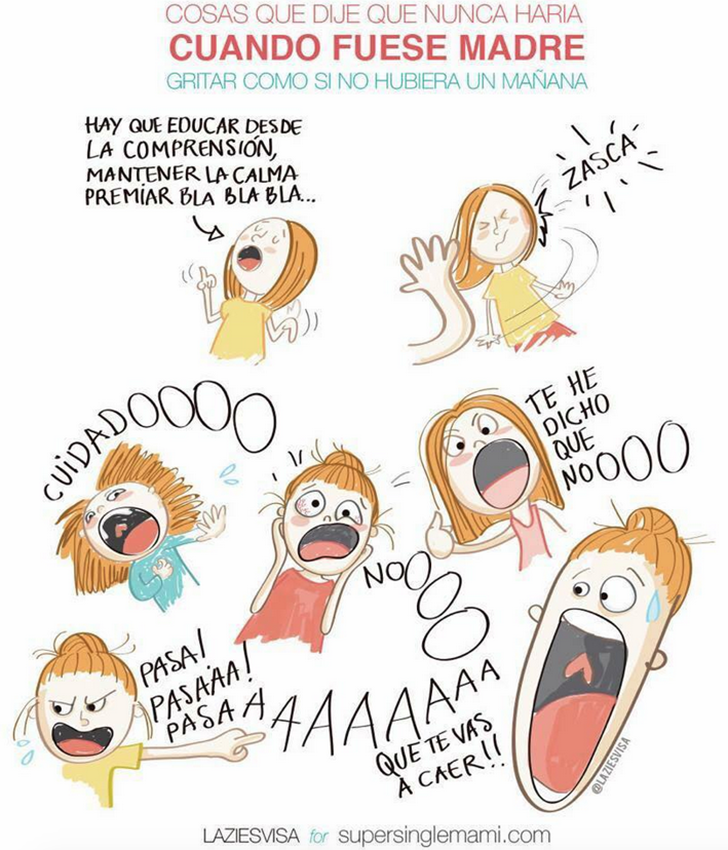
And a few words about the organization of the festival. She was at a high level. An excellent large-format booklet and programs for each performance with good color printing thoroughly informed the audience about its content. Among the guests of honor are the director of the La Scala Theater Museum Renato Garavaglia, heads of the largest Ukrainian opera houses. All the days of the festival, I felt that the spirit of high and eternal classical art lives here, not subject to momentary newfangled trends.
Madama Butterfly. Manami Hama – Cio-Cio-san
Solomiya Krushelnitskaya as Cio-Cio-san
“Aida”. A scene from the play
Un ballo in maschera. R. Trokhimuk – Richard, O. Sidor – Renato, N. Kuriltsiv – Oscar
“Masquerade Ball”. Scene from act 3
Gala concert. Andrey Valenty
Gala concert. Ramiz Usmanov
Gala concert. Georgina von Benza
Gala concert. Konstantin Rittel-Kobylyansky
Gala concert. Lyubov Kachala
Gala concert.